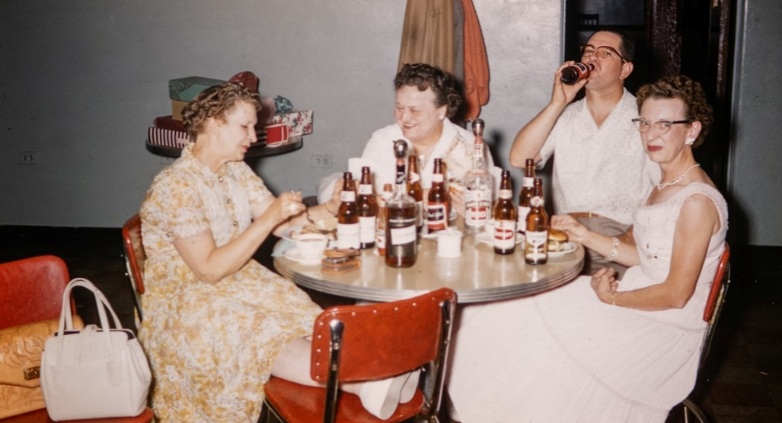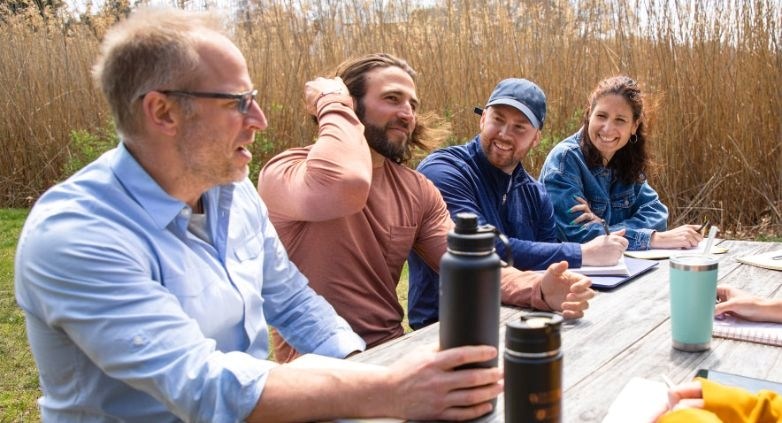
Does Alcoholism Run in Families? Understanding Your Risk
Alcohol addiction—also known as alcohol use disorder (AUD)—is a devastating, complex illness that affects millions of families in Connecticut, Massachusetts, and across the country.
One of the most common questions people ask is: Does alcohol addiction run in families?
The answer is yes—alcohol addiction often runs in families, influenced by both genetic and environmental factors. While a family history of alcohol use disorder can increase a person’s genetic risk, the environment they grow up in—such as exposure to alcohol use, family habits, and emotional dynamics—also plays a major role. Recognizing the combined impact of genetics and environment is essential for effective prevention and treatment.
This comprehensive article explores the science behind alcohol use disorder, examining the genetic predisposition to alcohol addiction, the impact of family history of alcoholism, environmental factors in alcohol addiction, and practical steps for preventing alcohol addiction in families.
If you’re seeking answers, support, or alcohol addiction treatment—whether for yourself or a loved one—read on to learn how Project Courage can help you break the cycle.
Real people. Real support.
Seeking Help for Yourself or a Loved One?
Connect with our professionals to start the journey to recovery.
Call 860.388.9656 for immediate support.

Understanding Alcohol Addiction
What Is Alcohol Use Disorder?
Alcohol use disorder (AUD) is a chronic, relapsing brain disease defined by an inability to control or stop drinking despite negative consequences. As the CDC explains, alcohol addiction poses major risks to physical and mental health, and its impact extends far beyond the individual.
Physical, Psychological, and Emotional Effects:
Alcohol addiction affects the body and mind—damaging the liver, heart, and brain, while also causing anxiety, depression, and family stress. If you’re unsure whether your drinking is a problem, our guide on How to Know If You Have a Drinking Problem can help you assess your situation.
Ready for help?
Explore Project Courage’s full suite of Intensive Outpatient Programs (IOP) and our innovative In-Home Recovery Services.
Free Download
Proven Programs for Lasting Recovery
Receive your free guide to understanding alcohol addiction and discovering recovery programs tailored to you. Learn how to build a personal sobriety plan and get support every step of the way.
Genetic Factors: The Role of Heredity
A central question in alcohol addiction research is: Does alcohol addiction run in families? The answer, based on decades of study, is yes—genetic and environmental influences both play powerful roles.
The Science: Alcoholism and Heredity
Genetic predisposition to alcohol addiction means certain people inherit genes that make them more vulnerable to developing alcohol use disorder. Studies reveal that genes can affect:
- How the body metabolizes alcohol (genes like ADH1B and ALDH2)
- How alcohol interacts with the brain’s reward system
- Sensitivity to alcohol’s effects
A recent study from NIAAA found that about 50% of the risk for developing AUD is inherited, underscoring the significance of family history of alcoholism.

Environmental Factors: The Influence of Family and Upbringing
Does alcohol addiction run in families solely due to genetics? The answer is no—environmental factors in alcohol addiction are equally vital.
Family Dynamics and Early Exposure
- Parental Behaviors: Children imitate adult behaviors, including drinking patterns.
- Early Exposure: Growing up around alcohol misuse increases risk for future problems.
- Family Communication: Open, honest dialogue about alcohol can lower risk. If you need help talking to a family member about their addiction, Project Courage has guidance and support.
Social learning theory tells us that children “learn what they live.” Healthy modeling and clear boundaries can be a strong defense against future addiction.
For families seeking practical advice, see our article: How to Help a Drug Addict Family Member.
The Interaction Between Genetics and Environment
Does alcohol addiction run in families? The answer is complex—genetics and environment interact in powerful, dynamic ways.
Gene-Environment Interactions
- Gene-Environment Interaction: Inherited risk may not manifest unless triggered by environmental stressors or trauma.
- Epigenetics: Environmental factors can influence gene expression, potentially raising or lowering risk for alcohol addiction—even across generations.
The National Institute on Drug Abuse offers a helpful overview of genetic and environmental influences on substance use.

Research Findings: Family History and Alcohol Addiction
Key Studies and Statistics
Research shows that people with a family history of alcoholism are 2 to 4 times more likely to develop alcohol use disorder themselves. Twin and adoption studies help separate genetic and environmental effects, confirming that both matter.
If you’re wondering how to break the cycle, Project Courage’s family services can help families heal together.
Virtual Recovery: New Options for Families
Project Courage offers virtual addiction recovery programs, an essential tool for families balancing busy schedules or geographic limitations. Virtual care is an effective way to start, and often a stepping stone to more personalized in-home support.
Is Alcohol Addiction Inevitable If It Runs in the Family?
It’s crucial to know: a family history of alcoholism is a risk factor, not a life sentence.
The Power of Prevention and Early Intervention
- Personal Choice: Healthy choices, positive coping skills, and strong support networks matter.
- Early Intervention: Recognizing the signs early can make all the difference. Explore our resource on Steps to Help Someone With Addiction.
- Prevention: Open family dialogue, clear rules, and role modeling help lower risk. For a full resource guide, see What Resources Are Available for Families of Addicts?.
If you’re worried about a loved one, don’t wait—Contact Project Courage for a confidential consultation.

Preventing and Managing Alcohol Addiction in Families
Effective Strategies for Families
- Open Communication: Honest discussions about alcohol and family risk.
- Setting Boundaries: Establish clear, loving limits on alcohol use.
- Education: Stay informed and educate your children about substance use.
Real people. Real support.
Seeking Help for Yourself or a Loved One?
Connect with our professionals to start the journey to recovery.
Call 860.388.9656 for immediate support.
Support and Resources
- Professional Help: Project Courage offers customized treatment options for every stage of recovery.
- Family Support Services: Learn how our family programs can help you support your loved one.
- Frequently Asked Questions: For answers to common concerns, visit our FAQs.
Frequently Asked Questions
No. Both genetic predisposition to alcohol addiction and environmental influences—like family behaviors and stress—affect risk.
Yes. Prevention strategies include family education, healthy coping skills, and professional support. Learn more in our article, How to Help a Drug Addict Family Member.
Virtual addiction recovery programs can be just as effective as in-person treatment, especially when integrated with family support.
Visit What Resources Are Available for Families of Addicts? for a comprehensive guide.
Free Download
Proven Programs for Lasting Recovery
Receive your free guide to understanding alcohol addiction and discovering recovery programs tailored to you. Learn how to build a personal sobriety plan and get support every step of the way.
Breaking the Cycle with Project Courage
Does alcohol addiction run in families? Yes, but it is not inevitable. Both genetic predisposition and environmental factors shape risk—but families can break the cycle with the right support, education, and treatment.
If you’re ready to take the first step:
- Contact Project Courage today for a confidential assessment.
- Discover our promise of compassionate, ethical care at Our Promise.
- Learn more about our philosophy and approach on the About Us page.
- Explore our full range of Intensive Outpatient Programs and In-Home Recovery Services.
- Find out how Family Services can help your loved ones heal.
- Browse common concerns and next steps in our FAQs.
Additional Resources
- CDC Alcohol Use Facts
- SAMHSA Family Resources
- NIDA: Genetics & Epigenetics of Addiction
Remember: Even if alcohol addiction runs in families, every person—and every family—can choose a different path. With Project Courage, you’re never alone. Start your recovery journey today.


